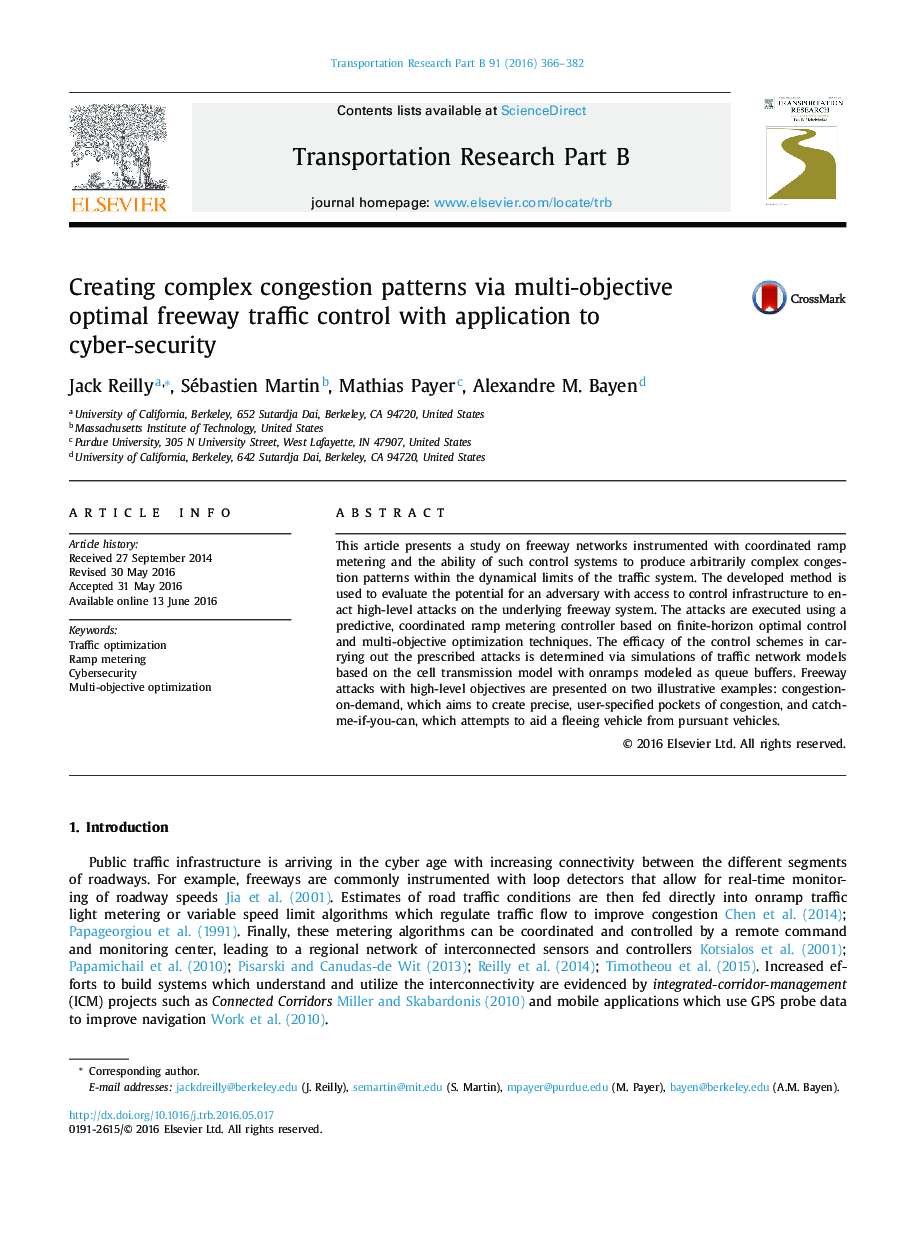| Article ID | Journal | Published Year | Pages | File Type |
|---|---|---|---|---|
| 1131542 | Transportation Research Part B: Methodological | 2016 | 17 Pages |
•We present a Controllability analysis of freeways with coordinated metering.•We applied method to evaluate impact of control system cyber-physical attacks.•A taxonomy of attack vectors on traffic infrastructure are detailed.•We simulate complex, original metering attacks via multi-objective optimization.
This article presents a study on freeway networks instrumented with coordinated ramp metering and the ability of such control systems to produce arbitrarily complex congestion patterns within the dynamical limits of the traffic system. The developed method is used to evaluate the potential for an adversary with access to control infrastructure to enact high-level attacks on the underlying freeway system. The attacks are executed using a predictive, coordinated ramp metering controller based on finite-horizon optimal control and multi-objective optimization techniques. The efficacy of the control schemes in carrying out the prescribed attacks is determined via simulations of traffic network models based on the cell transmission model with onramps modeled as queue buffers. Freeway attacks with high-level objectives are presented on two illustrative examples: congestion-on-demand, which aims to create precise, user-specified pockets of congestion, and catch-me-if-you-can, which attempts to aid a fleeing vehicle from pursuant vehicles.
